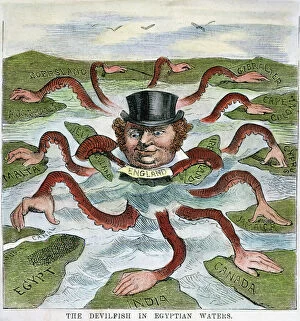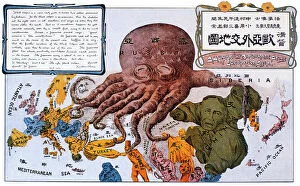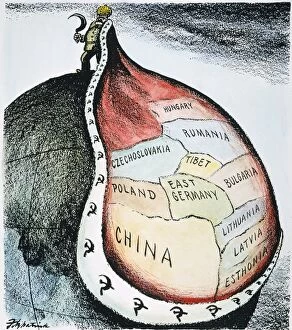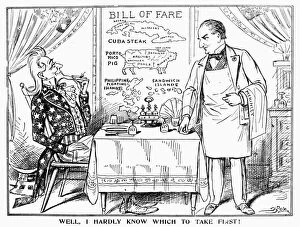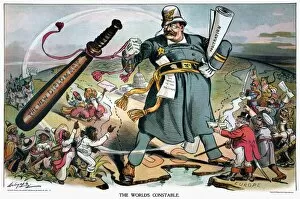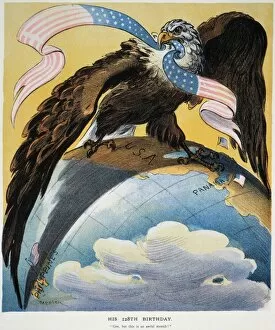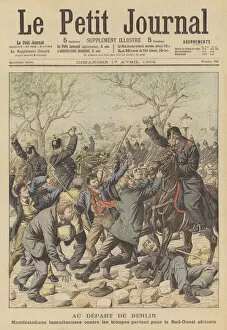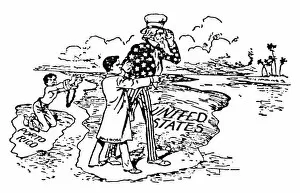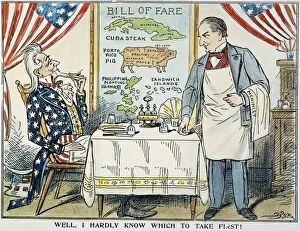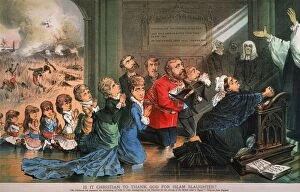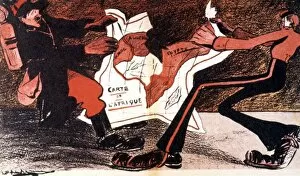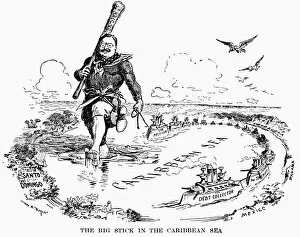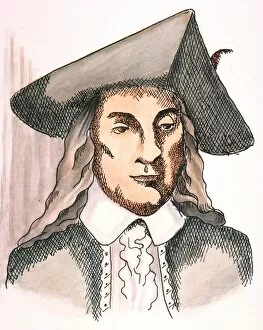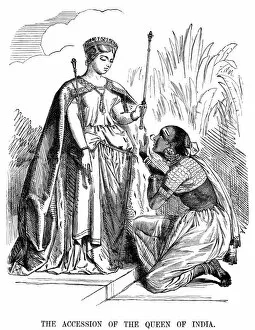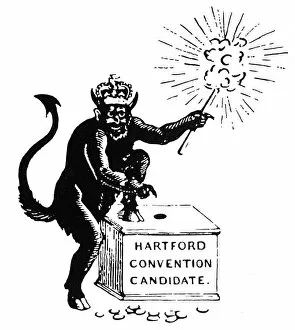Anti Colonialism Collection
"Unmasking the Octopus: A Historical Perspective on Anti-Colonialism" Throughout history
For sale as Licensed Images
Choose your image, Select your licence and Download the media
"Unmasking the Octopus: A Historical Perspective on Anti-Colonialism" Throughout history, the insidious grip of imperialism has been depicted and challenged in various forms. In an American cartoon from 1882 titled "The Devilfish in Egyptian Waters, " England is portrayed as John Bull, the octopus of imperialism, greedily seizing land across continents. This visual representation highlights the destructive nature of colonial expansion. Another powerful portrayal comes from a humorous diplomatic atlas dating back to 1904. The "Anti-Russian Map" satirically exposes Europe and Asia's political landscape, shedding light on the detrimental consequences of imperialistic ambitions. In this struggle against oppressive forces, figures like Mohandas Gandhi emerged as Hindu nationalist leaders and spiritual guides. Gandhi's unwavering commitment to non-violence became a symbol of resistance against British colonial rule in India during the early twentieth century. However, anti-colonial sentiments were not limited to India alone. An assassination targeting France's ally in Morocco serves as a stark reminder that resistance movements spanned across different regions affected by colonization. Protests erupted even within colonizing nations themselves; demonstrations rocked Berlin when troops were sent to German South-West Africa. These acts showcased growing dissent against imperialist policies among citizens who questioned their government's actions abroad. Cartoons often served as potent tools for social commentary during this era. One such illustration featured on La Caricature magazine's cover in November 1898 depicts John Bull bringing peace and civilization under his wing while claiming himself as a pioneer of progress—a thinly veiled satire exposing Britain's self-proclaimed mission civilisatrice. The influence of imperialism extended beyond European powers; it reached into North Africa with Abd El-Kader leading his Red Cavalry against foreign invaders around 1840-45—an act embodying resistance against encroaching empires seeking control over indigenous lands. Across the Atlantic Ocean, America grappled with its own imperialistic tendencies.

